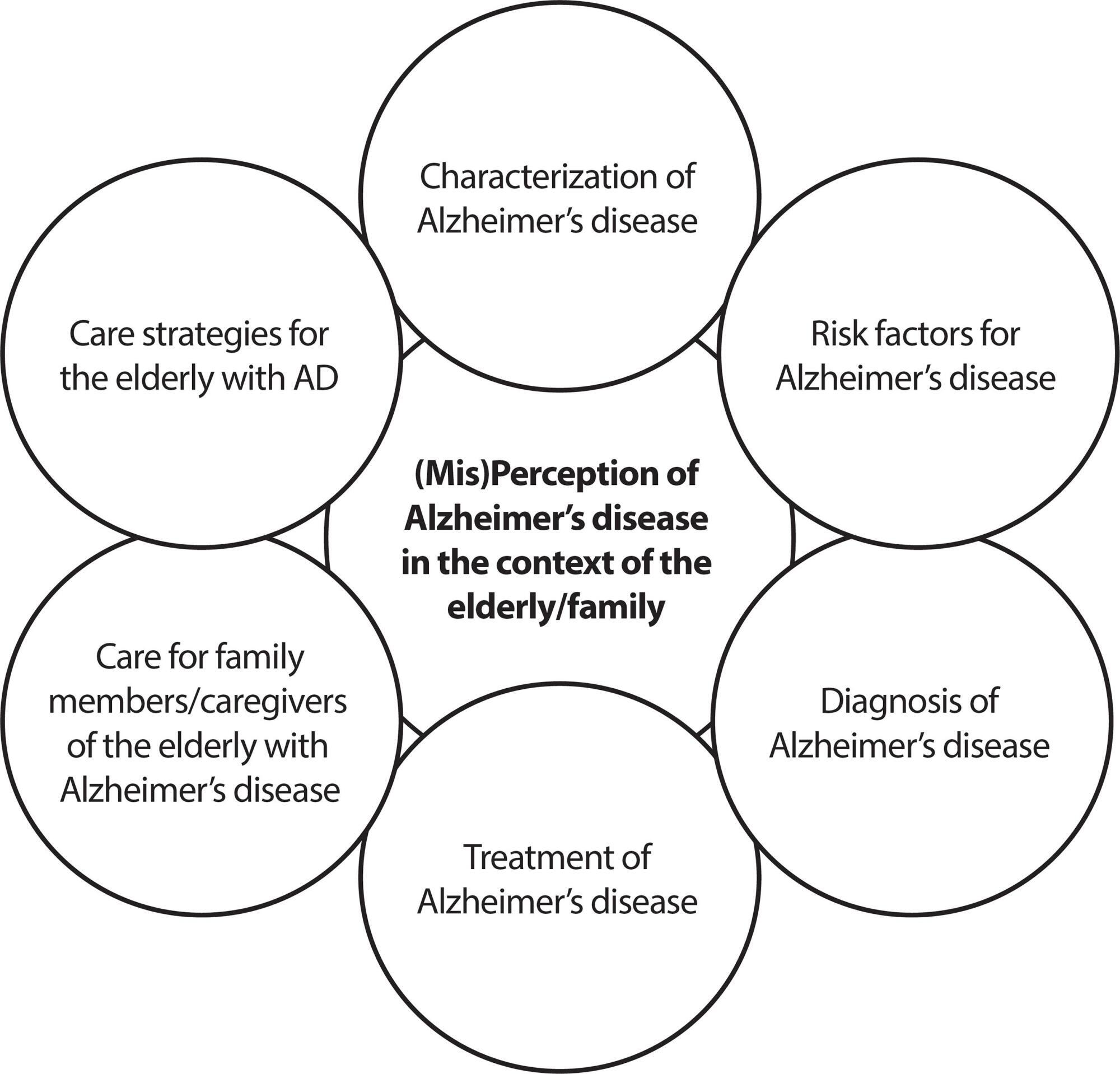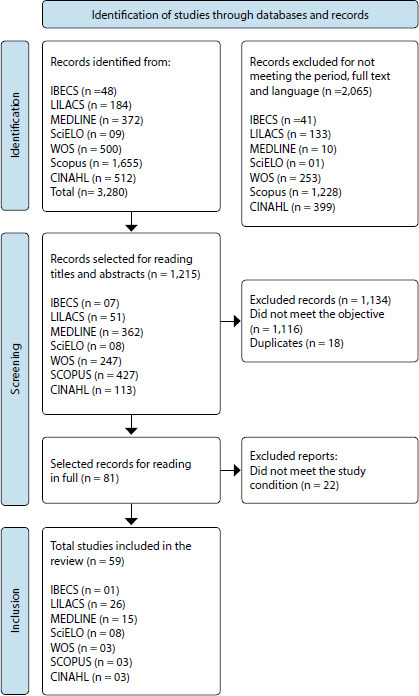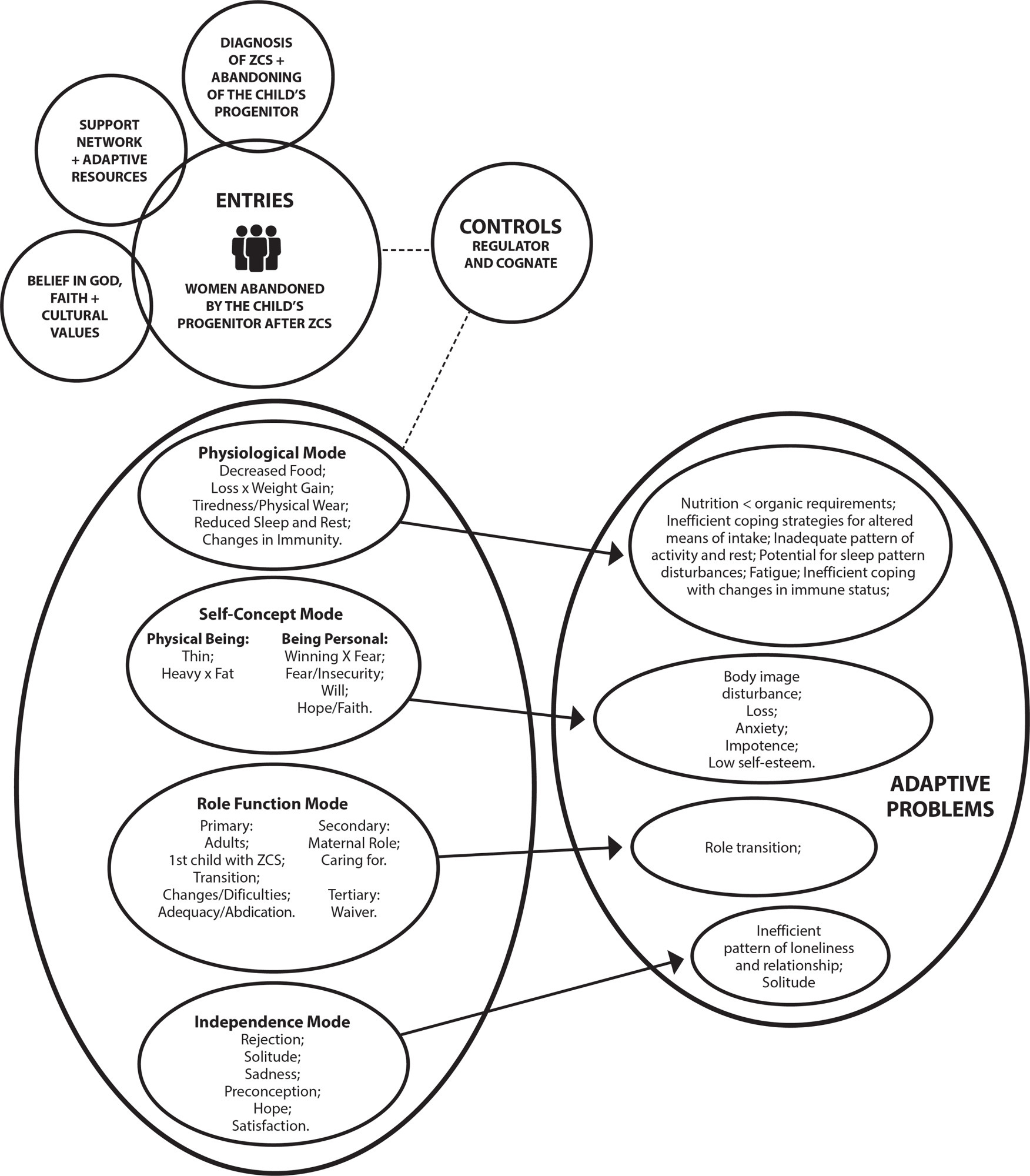-
ORIGINAL ARTICLE01-10-2024
COVID-19: Training activities, adherence, and use of personal protective equipment in Primary Health Care
Revista Brasileira de Enfermagem. 2024;77:e20230179
Abstract
ORIGINAL ARTICLECOVID-19: Training activities, adherence, and use of personal protective equipment in Primary Health Care
Revista Brasileira de Enfermagem. 2024;77:e20230179
DOI 10.1590/0034-7167-2023-0179
Views1See moreABSTRACT
Objective:
to analyze the association between participation in training activities and the adherence to and use of personal protective equipment by workers and professionals involved in Health Residency Programs in Primary Health Care during the COVID-19 pandemic.
Methods:
a cross-sectional study in Brazil between August/2020 and March/2021. We utilized the EPI-APS COVID-19 instrument and its adapted version for resident professionals.
Results:
455 PHC workers and 102 residents participated in the study. Among them, 54.5% and 55.9%, respectively, engaged in training activities. We observed an association between participation in training activities and the proper use of gloves (p<0.001), gowns (p=0.009), goggles/face shields (p=0.002), and overall adherence (p<0.001) among PHC workers, and the proper use of surgical masks (p=0.028) among residents. Adherence rates of ≥75% were identified in 6.9% of PHC workers and none among the residents.
Conclusion:
training activities are associated with increased adherence to and proper use of PPE.
-
REVIEW01-10-2024
Nurses’ practical contributions to improving healthy and sustainable public spaces: an integrative review
Revista Brasileira de Enfermagem. 2024;77:e20240023
Abstract
REVIEWNurses’ practical contributions to improving healthy and sustainable public spaces: an integrative review
Revista Brasileira de Enfermagem. 2024;77:e20240023
DOI 10.1590/0034-7167-2024-0023
Views0See moreABSTRACT
Objective:
to identify knowledge production about nurses’ contributions to improving healthy and sustainable public spaces.
Methods:
an integrative review carried out in February 2023 in electronic databases. Studies that answered the research question and that were available in full, in Portuguese, English and Spanish, were included.
Results:
a total of five articles were selected. The findings highlighted the importance of educational projects in the training of local managers and community autonomy; citizen participation and health promotion as ways to implement Sustainable Development Goal 11; nurses as facilitators of collective care; new health practices and modes of producing subjectivity; and use of public transportation, bicycles and/or walking in these spaces.
Final considerations:
there is a clear need for greater incentives from local governments to develop effective sustainability strategies that are led by nurses and the community.

-
ORIGINAL ARTICLE01-10-2024
Brazil-Portugal Comparison: Education, Health and Social Development in light of the Sustainable Development Goals
Revista Brasileira de Enfermagem. 2024;77:e20240047
Abstract
ORIGINAL ARTICLEBrazil-Portugal Comparison: Education, Health and Social Development in light of the Sustainable Development Goals
Revista Brasileira de Enfermagem. 2024;77:e20240047
DOI 10.1590/0034-7167-2024-0047
Views0See moreABSTRACT
Objective:
to comparatively analyze the health, education and social development systems of Brazil and Portugal, their relationship with the Sustainable Development Goals and the Organization for Economic Cooperation and Development averages.
Method:
exploratory and descriptive qualitative research, through documentary analysis. The indicators address health, education and social development, considering life expectancy, mortality, prevalence of chronic diseases, literacy, educational performance and poverty rates.
Results:
indicate significant differences between countries. Portugal presents better indicators in life expectancy, educational quality and poverty rates, whereas Brazil faces greater challenges in chronic diseases and equity in access to healthcare services.
Final considerations:
the importance of public policies adapted to local realities and the need for a strategic vision for healthcare systems aligned with the Sustainable Development Goals, in addition to the need for continuous investments and integration of digital health for efficient and equitable systems, stand out.
-
ORIGINAL ARTICLE01-10-2024
Inventory of ethical problems in mobile pre-hospital care
Revista Brasileira de Enfermagem. 2024;77:e20230539
Abstract
ORIGINAL ARTICLEInventory of ethical problems in mobile pre-hospital care
Revista Brasileira de Enfermagem. 2024;77:e20230539
DOI 10.1590/0034-7167-2023-0539
Views1See moreABSTRACT
Objective:
to construct and validate the content of an inventory of ethical problems experienced by nurses in mobile pre-hospital care.
Method:
a psychometric approach study, developed with the following stages: (1) instrument construction through a theoretical matrix based on deliberative bioethics, scoping review and online qualitative research; (2) content validity by judges; (3) pre-testing with Mobile Emergency Care Service nurses in various Brazilian states. For content validity analysis, the Content Validity Ratio was calculated (CVR>0.45 for judges and CVR>0.35 for the target population).
Results:
the instrument had 44 items, distributed across four dimensions.
Final considerations:
the constructed instrument presented sources of evidence of content validity, providing good psychometric measurements and constituting a useful tool for nurses’ practice in the pre-hospital setting.

-
ORIGINAL ARTICLE01-10-2024
Nursing students and the internet: a reflection of digital ethics
Revista Brasileira de Enfermagem. 2024;77:e20230459
Abstract
ORIGINAL ARTICLENursing students and the internet: a reflection of digital ethics
Revista Brasileira de Enfermagem. 2024;77:e20230459
DOI 10.1590/0034-7167-2023-0459
Views0See moreABSTRACT
Objectives:
to identify how first-year nursing students use cyberspace and propose an orientation guide with criteria guiding the use of cyberspace.
Methods:
qualitative and descriptive research, carried out with 24 nursing students from a federal public institution in Rio de Janeiro. Data collection was carried out through semi-structured interviews. Data analysis occurred using IRAMUTEQ®. The research was approved by the institution’s Research Ethics Committee.
Results:
students use cyberspace to communicate, study, find “cool things”, share photos and memories. Furthermore, they are concerned about hate speech, intolerance and fake news. The good and bad sides and the types of technologies most used were also portrayed.
Final considerations:
the moral and ethical values of physical coexistence, together with awareness of individual responsibility, are the pillars for using cyberspace. The guide comes as an awareness tool.

-
ORIGINAL ARTICLE01-10-2024
Maternity behind and beyond bars: analysis from the perspective of protection bioethics
Revista Brasileira de Enfermagem. 2024;77:e20220576
Abstract
ORIGINAL ARTICLEMaternity behind and beyond bars: analysis from the perspective of protection bioethics
Revista Brasileira de Enfermagem. 2024;77:e20220576
DOI 10.1590/0034-7167-2022-0576
Views0See moreABSTRACT
Objective:
to analyze how motherhood is expressed in female prison units from the perspective of Bioethics of Protection.
Method:
qualitative research with an ethnographic approach, developed in two women’s prison units. Participantes were: six mothers deprived of liberty, 15 health professionals, and nine prison officers. For data collection, semi-structured interviews and descriptive observation were used. Data analysis was based on the Content Analysis technique, thematic category.
Results:
three categories emerged: women and children violated behind bars (inequities); mothers and children in prison exacerbating imbalances, tensions and conflicts; and limits and references for resocialization.
Final Considerations:
the Bioethics of Protection proposal appears as a valid tool for the analytical direction of the process of confronting issues in the scope of public health in prison units, considering vulnerable groups and aiming at equity and human dignity.
-
ORIGINAL ARTICLE01-10-2024
Self-harm in the two years of greatest restrictions during the covid-19 pandemic: a cross-sectional study
Revista Brasileira de Enfermagem. 2024;77:e20240289
Abstract
ORIGINAL ARTICLESelf-harm in the two years of greatest restrictions during the covid-19 pandemic: a cross-sectional study
Revista Brasileira de Enfermagem. 2024;77:e20240289
DOI 10.1590/0034-7167-2024-0289
Views0See moreABSTRACT
Objective:
to analyze occurrence of self-harm, sociodemographic profile of victims and referrals in the first 24 months of the COVID-19 pandemic in São Paulo.
Method:
cross-sectional study carried out by the Notifiable Diseases Information System with data on self-harm in São Paulo. The period outlined was March 2020 to February 2022. R (4.0.2) software and chi-square test were used.
Results:
there were 15,946 incidents. Victims were young, white, single, heterosexual women. There was high incidence of people with previous mental disorders more than once and without clear motivation. The method used was poisoning/intoxication. There was a considerable number of referrals to the health network, although not totalitarian.
Conclusion:
the years of greater insecurity in relation to the pandemic have given rise to self-harm cases with peculiar characteristics. Agile health policies must be applied in atypical conditions, such as pandemics, especially for adolescents/young people with previous mental disorders.
-
REVIEW01-10-2024
Health of quilombola children as a challenge for the Sustainable Development Goals: a scoping review
Revista Brasileira de Enfermagem. 2024;77:e20240106
Abstract
REVIEWHealth of quilombola children as a challenge for the Sustainable Development Goals: a scoping review
Revista Brasileira de Enfermagem. 2024;77:e20240106
DOI 10.1590/0034-7167-2024-0106
Views0See moreABSTRACT
Objective:
to map the literature on quilombola children’s health and its relationship with the Sustainable Development Goals.
Method:
a scoping review, which followed the JBI protocol and the Preferred Reporting Items for Systematic reviews and Meta-Analyses extension for Scoping Reviews. Searches were conducted in the LILACS, BDENF, Web of Science, Scopus, MEDLINE databases and Google Scholar platform. The research protocol was registered in the Open Science Framework.
Results:
eighteen articles out of 2,055 studies were selected as relevant for this study. The articles were grouped into four axes: Access to healthcare services; Nutritional aspects of quilombola children; Health problems of quilombola children; and Care for quilombola children. The relationship between these articles and SDGs 1, 3, 4, 6 and 10 was observed.
Final considerations:
the study provided an extremely important mapping of the theme of quilombola children’s health and themes related to the Sustainable Development Goals.

-
ORIGINAL ARTICLE07-13-2020
Awareness raising workshop for nursing students on the elderly with Alzheimer’s disease: contributions to education
Revista Brasileira de Enfermagem. 2020;73:e20190021
Abstract
ORIGINAL ARTICLEAwareness raising workshop for nursing students on the elderly with Alzheimer’s disease: contributions to education
Revista Brasileira de Enfermagem. 2020;73:e20190021
DOI 10.1590/0034-7167-2019-0021
Views1See moreABSTRACT
Objective:
To describe the contribution of an awareness-raising workshop for nursing students on Alzheimer’s disease in the context of the elderly/family.
Methods:
Strategic action-research developed with 15 university students from the sixth to the eighth semester of Nursing at a university institution in the Rio Grande do Sul. The data collected through semi-structured interviews, before and after an awareness-raising workshop on Alzheimer’s disease in elderly/family, were subjected to thematic content analysis.
Results:
Six categories were identified that concern (Mis) perception of Alzheimer’s disease in the context of elderly/ family, from the characterization; risk factors; diagnosis; treatment of Alzheimer’s disease; from care to family members/caregivers; and care strategies for the elderly with Alzheimer’s disease.
Conclusion:
The awareness-raising workshop enabled the students to broaden and deepen the knowledge on the theme of Alzheimer’s disease in the elderly.

-
ORIGINAL ARTICLE09-23-2022
Analysis of the concept of cardiovascular risk: contributions to nursing practice
Revista Brasileira de Enfermagem. 2022;75(4):e20210803
Abstract
ORIGINAL ARTICLEAnalysis of the concept of cardiovascular risk: contributions to nursing practice
Revista Brasileira de Enfermagem. 2022;75(4):e20210803
DOI 10.1590/0034-7167-2021-0803
Views0See moreABSTRACT
Objectives:
to analyze the concept of cardiovascular risk to support nursing practice.
Methods:
this is an analysis to define the concept of cardiovascular risk, through the use of eight steps of Walker’s and Avant’s framework, using a literature review in indexed scientific journals.
Results:
cardiovascular risk is defined in a broad and original way as a context of health and nursing care that makes it possible to identify modifiable (cardiometabolic, behavioral, psychosocial, cultural and occupational) and non-modifiable (biological) risk factors for cardiovascular diseases that act as early and interrelated markers, of multiple and heterogeneous etiology, predisposing to cardiovascular vulnerability.
Conclusions:
with the analysis and definition of the concept of cardiovascular risk, we realized that it will be possible to base nursing practice, with implications in clinical practice for identifying and reducing risk factors for cardiovascular diseases, with nursing relevance in the care of these subjects.

-
REFLECTION11-11-2020
Children with special needs in health: challenges of the single health system in the 21st century
Revista Brasileira de Enfermagem. 2020;73:e20190037
Abstract
REFLECTIONChildren with special needs in health: challenges of the single health system in the 21st century
Revista Brasileira de Enfermagem. 2020;73:e20190037
DOI 10.1590/0034-7167-2019-0037
Views0See moreABSTRACT
Objective:
Reflect on the gaps in the care of Children with Special Needs in Health that demand complex clinical care with dependence on technological support for the maintenance of life, in the Unified Health System.
Methods:
This is a reflection study based on recent policies and literature related to the theme.
Discussion:
Despite the advances achieved with the Unified Health System with regard to access to health services and the expansion of Primary Care, with the aim of reorienting health, it can be said that the health care model for CSHCN in Brazil is still centered on the hospital and medical knowledge.
Final considerations:
There are gaps in the policies for children aimed at the new paediatric profile, and little is discussed about its implications for the Unified Health System.
-
ORIGINAL ARTICLE10-21-2019
Being an institutionalized elderly person: meaning of experiences based on Heidegger’s phenomenology
Revista Brasileira de Enfermagem. 2019;72(6):1632-1638
Abstract
ORIGINAL ARTICLEBeing an institutionalized elderly person: meaning of experiences based on Heidegger’s phenomenology
Revista Brasileira de Enfermagem. 2019;72(6):1632-1638
DOI 10.1590/0034-7167-2018-0763
Views0See moreABSTRACT
Objective:
Analyze the meaning of being an elderly person living in a long-term institution.
Method:
Qualitative study based on Martin Heidegger’s thought. Twelve phenomenological interviews were conducted with people aged over 60 years living in a long-term institution for the elderly in the city of Itabuna, Bahia, Brazil.
Results:
The units of meaning identified were: experience of progressive loss of autonomy and independence, perception of living in an institution as an inevitable circumstance; and being-with becoming being-alone/being-lonely. After the identification of ontic aspects and hermeneutical understanding, the unit of meaning was constructed: meaning of being an elderly person living in a long-term institution.
Final considerations:
The ontological needs referring to being an elderly person remain forgotten. As we are ontic and ontological, limited care to the ontic instance indicates deficiencies in institutionalization. Improvements are required to ensure the right to age with quality of life to this population.
-
ORIGINAL ARTICLE09-21-2020
Adaptive problems arising out of the progenitor’s abandonment after Zika Congenital Syndrome
Revista Brasileira de Enfermagem. 2020;73:e20190602
Abstract
ORIGINAL ARTICLEAdaptive problems arising out of the progenitor’s abandonment after Zika Congenital Syndrome
Revista Brasileira de Enfermagem. 2020;73:e20190602
DOI 10.1590/0034-7167-2019-0602
Views0See moreABSTRACT
Objective:
to reveal the adaptive problems of the woman abandoned by the child’s parent after Congenital Zika Syndrome, in the light of Roy’s Adaptation Model.
Method:
a qualitative, descriptive study, based on Roy’s Adaptation Model, developed with six women abandoned by their child’s parent after Zika Congenital Syndrome diagnosis, through interview and Content Analysis technique.
Results:
adaptive problems appeared in nutrition, activity, rest, and protection patterns, due to limitations in self-care; self-concept, related to dissatisfaction with body image and personal being; in the role of transition role, through difficulties in taking over new roles and in interdependence, related to changes in affective needs.
Final considerations:
the overload of care for children with Congenital Zika Syndrome, added to the challenges of the abandoned woman by her child’s parent, led to adaptive problems, showing their main difficulties of coping.

-
REVIEW04-16-2021
Nursing assistance in patient care with external ventricular drain: a scoping review
Revista Brasileira de Enfermagem. 2021;74(2):e20190796
Abstract
REVIEWNursing assistance in patient care with external ventricular drain: a scoping review
Revista Brasileira de Enfermagem. 2021;74(2):e20190796
DOI 10.1590/0034-7167-2019-0796
Views0See moreABSTRACT
Objectives:
to map the available evidence about nursing care aimed at adult patients using external ventricular drain.
Methods:
this is a review using the scoping review method.
Results:
Initially, 965 studies were identified and, after the eligibility criteria, a sample of 54 publications was obtained. Each of them was assessed according to GRADE, resulting in three studies with high quality; 14 with moderate quality; 32 with low quality; and five with very low quality. It was highlighted 20 nursing care subdivided into nine categories, namely: drainage system; bed positioning and mobilization; catheter care; monitoring of intracranial pressure; and medication administration.
Conclusions:
the scoping review made it possible to identify the main nursing care directed to adult patients undergoing placement of external ventricular drain from the evidence available to date.

-
ORIGINAL ARTICLE10-21-2019
Multidisciplinary team actions of a Brazilian Psychosocial Care Center for Alcohol and Drugs
Revista Brasileira de Enfermagem. 2019;72(6):1624-1631
Abstract
ORIGINAL ARTICLEMultidisciplinary team actions of a Brazilian Psychosocial Care Center for Alcohol and Drugs
Revista Brasileira de Enfermagem. 2019;72(6):1624-1631
DOI 10.1590/0034-7167-2018-0760
Views0See moreABSTRACT
Objective:
to investigate the criteria used by health professionals to identify the phase of consumption of alcohol and drug users, and actions directed to their care.
Method:
a qualitative study developed with 14 professionals from a Brazilian Psychosocial Care Center for Alcohol and Drugs (Centro de Atenção Psicossocial Álcool e Drogas) based in the south of the country. Data were collected in June 2017 through semi-structured interviews and then submitted to thematic analysis.
Results:
the criteria used by the professionals were: periodicity of use; amount and type of drug used; repercussions of misuse; and place that the drug occupies in the person’s life. The actions developed were orientation and referral to support groups, therapeutic workshops and individual care.
Final considerations:
the chronic nature of alcohol/drug use/dependence requires specific care in each phase, and objective criteria to identify and intervene in early phases, aiming at the prevention of chemical dependence.
-
06-11-2021
Resilience in elderly people: factors associated with sociodemographic and health conditions
Revista Brasileira de Enfermagem. 2021;74:e20200171
Abstract
Resilience in elderly people: factors associated with sociodemographic and health conditions
Revista Brasileira de Enfermagem. 2021;74:e20200171
DOI 10.1590/0034-7167-2020-0171
Views0See moreABSTRACT
Objective:
to describe the sociodemographic and health characteristics of elderly people, measure the score of total resilience and by sex and verify the association of sociodemographic and health variables with total resilience and by sex.
Methods:
this is a household survey with 808 elderly people, assessed by validated instruments. Student’s t test and multiple linear regression (p<0.05).
Results:
most were female, 60|-|79 years old. The total resilience score was 78.06, for men 81.53 and for women, 76.32. Total resilience was associated with males; positive self-perceived health; greater participation in Advanced Activities of Daily Living; fewer morbidities; absence of depressive symptoms. Among men and women, resilience was associated with greater participation in Advanced Activities of Daily Living and absence of depressive symptoms and, specifically, among women, positive self-perceived health.
Conclusion:
these results contribute to nursing care, aiming to encourage resilience.
Search
Search in:
Nuvem de Tags
Adolescente (85) Atenção Primária à Saúde (239) COVID-19 (91) Criança (91) Cuidados de Enfermagem (269) Educação em Enfermagem (151) Educação em Saúde (139) Enfermagem (930) Enfermagem Pediátrica (86) Estudantes de Enfermagem (77) Estudos de Validação (131) Família (87) Idoso (208) Promoção da Saúde (99) Qualidade de Vida (104) Saúde do Trabalhador (86) Saúde Mental (145) Saúde Pública (82) Segurança do Paciente (150) Tecnologia Educacional (100)



